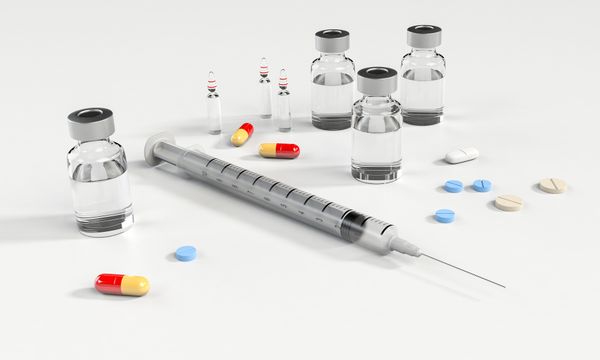Plenty of terrified adults took to the internet this past week to express their concern for "synthetic marijuana," also known as K2. This is because on the week of July 12, 33 people were transported to a hospital in Brooklyn, New York after allegedly taking the substance. It was later reported that 130 of them had been hospitalized for symptoms caused by smoking this synthetic drug. A video of some of the individuals went viral, and it is apparent that many of them can't function regularly. These suspected users don't appear to be completely coherent enough to even hold a regular conversation or interaction with another human. Although these news stories have recently arisen, the potentially harmful synthetic drug, popularly compared to marijuana, has been on the market in the U.S for quite some time.
K2 is commonly sold in the form of incense, which is labeled "not for human consumption." However, with the vast number of K2 related news stories and hospital cases over the past ten years, as ironic as it is, it can be reasonably assumed that most people buying the products are buying it specifically for consumption.
The product is classified as a synthetic cannabinoid, which usually includes an assortment of plants that are shredded and dried, and sprayed with man made chemicals that alter the mind if smoked. Cannabinoids are also sold as liquids which can be vaporized and inhaled in an e-cigarette. However, don't let the name misguide you. Cannabinoids are absolutely not cannabis. It is sometimes referred to as "synthetic marijuana" due to the fact it is a plant that can be smoked, and will get you high. Besides this slight correlation, there is no significant parallels between the two substances. One is a naturally grown plant, and one is a mixture of mystery plants sprayed with questionable chemicals.
After a similar product called "Spice," was a hit among the marketplace, K2 was fast to follow and first appeared on the market in 2006. Many people, especially teenagers, started smoking the two products specifically because of this: It will get you high, and won't show up on a drug test. Another appeal to the drug is that it is cheap, and easily accessible. Online stores such as The Official K2 Incense will sell a gram, for about $3 to $5. In comparison, a gram of marijuana typically sells for more then double that price. This seems to be a relatively cheap way to get high, but at what actual cost?
The dangerous part about smoking K2 (or Spice) is that we don't know a lot about the substance, and the evidence we do have isn't strong. The long term health effects of using the substance are unpredictable due to the fact that there has been little scientific research on this fairly new synthetic drug. Though some of the short term effects have been publicized, in light of those who were hospitalized in the state of New York, for allegedly consuming K2. Since July of 2015, the health department reported that there were about 1,200 emergency room visits related to the drug. Based on past cases, it appears that taking the K2 could result in rapid heart rate, extreme anxiety, intense confusion, paranoia, seizures, vomiting, fainting, kidney failure, reduced blood supply to the heart, and hallucinations. These symptoms alone, are pretty compelling reasons not to use K2.
Wouldn't it be nice if there was a safer, natural alternative to "synthetic marijuana?"
It seems ironic that instead of just smoking marijuana, people decide to try a "fake version" of it instead. However, considering the low price of K2, and the absence of risk of it showing up on a drug test, it is plausible that some base their decision to smoke the substance purely off of these two logistics. It is also conceivable that the pervasiveness of this substance can be attributed to the fact that there has been little to no official scientific studies done that prove the substance is bad for you. Nonetheless, I think a reasonable person can assume that K2 probably isn't the safest thing to be smoking on.
If you ever decide to use K2, please stay safe and know the risks involved. Be sure to call 911 if any health issues arise.





















